Lyric Greece: a Sonnet Sequence Part Two
Modern poetry modern verse contemporary poetry contemporary verse modern poem contemporary poem
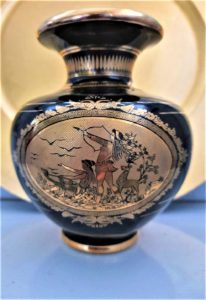
Daedalus and Icarus
Modern poetry modern verse contemporary poetry contemporary verse modern poem contemporary poem
“The natural rhythms of Greek [poetry] tend ‘downward,’ falling”
~ Michael Schmidt, The First Poets, 14
How strange it is to think that ancient Greek
In poetry inclined to downward flow.
We think that the trajectory was sleek
In upward movement in those minds aglow
With new fought logic and in beauty’s realm.
The men rose high and higher in their thought
And through carved loveliness of lines. The helm
They stood at was upon a ship that caught
The sunlit wind to plunge them forward. Sing
And write was what they did. They penned new ways
To think and mean. They built the mind a wing
Of newness for the stage, and book, and praise.
..That wing was meant for upwardness and flight
….And sunrise, not for falling towards the night.

“The pitch of the language was seen to relate it closely to music.”
~ Michael Schmidt, The First Poets, 14
A major key floats upwards in the soul.
The pitch of poetry is perfect for
The spirit like the beckoning North Pole
Entreats the compass. Yearning yet for more
We feel the fetching of the words inside
Our ribs, their cage, the way a bird chest swells
Behind the bars. The sounds pull in the tides
And flood us—or more like priming of wells.
But minor chords and melodies in spoken lines
Impel us outward, too. The sad and faint
Incise the bones and open us like mines.
How else could anyone become a saint?
The major and the minor pitches grope
Our hearts, propelling both despair and hope.
David and Jonathan,
Achilles and Patroclus,
Alexander and Hephaestion
Modern poetry modern verse contemporary poetry contemporary verse
 Hephaestion, lover of Alexander the Great
Hephaestion, lover of Alexander the Great
We heroize male anger, all the way
From David’s chopped Goliath to the wrath
Of pettish Prince Achilles. Poets bray
These killing wonders as they hew a path
Of blood and foreskins, broken heads and necks,
Five little pebbles fetched up from a brook,
Or battle swords and spears, men’s thrusting sex
With war-time trophies: girls god forsook
And dished out to the victors for their rape
And spawn. King Alexander is the worst,
The zenith of the worship of the shape
We praise. Aesthetic consciences are cursed.
These heroes always have their lovers by
Their sides. The moral? Even love is sly.
Did We Really Think that They
Would Give Her Body to Him?
Modern poetry modern verse contemporary poetry contemporary verse
Eurydice was dead. Come on. Just soul
Is all she was by then. So why would he
Expect some wonder from the deepest hole
Of anywhere, that cavern, Death? When she
Appeared from in that chasm moving toward
Him, Orpheus was wrong to think the gods
Would give him back the thighs that he adored.
I mean, consider it. What were the odds
Divinity would intervene in such
A case since it was only poet’s love?
It wasn’t like a god would feel a touch
Of pity for him. Gods are far above
Such caring. They do only selfish stuff.
She was dead, 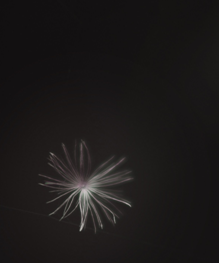 less than a bit of fluff.
less than a bit of fluff.
Desperate Measure
Modern poetry modern verse contemporary poetry contemporary verse
Eurydice, she knew the gods too well.
She knew that they would find a way to harm
Herself, her lover, and her love. Lost hell
Was where that Pluto lived forever. Charm
Him? That was possible. The poet had
Done just that. She had witnessed yet again
How utter was his gift. She knew, still, bad
Would come, no matter what. No kind amen
Was possible with pettish gods. She knew
That they would find a way to torture her.
And then it hit her. They would leave her blue
And thin as air, a bit of air to slur.
She called her husband’s name. He turned and saw.
She fled her fate back into Hades’ craw.
That Supreme Nazi, Plato,
Sounded Off about Orpheus
Modern poetry modern verse contemporary poetry contemporary verse
He takes the poison of his courage and
His love. He does not try to dazzle death
With poetry: Romeo is not bland
Like that. He gulps down. He breathes his last breath

For love made up of colors of the fire
Flame swallowers devour. He just kills
Himself. Yet Orpheus did not desire
That heroism. He offered Pluto thrills
To charm Eurydice past Hades’ clasp
But did not offer up his harping life.
The poet did not leap into the grasp
Of hell to save his ravishment stained wife.
The god of Hades loved his wife too much
To give the coward back his wife to touch.
Dim Imprecision:
Ambiguity and Clarity
Modern poetry modern verse contemporary poetry contemporary verse
“Poetry could reflect on itself, acknowledge its dim imprecision,
and know itself to be interpretation and not a window onto pure truth.” ~ http://ndpr.nd.edu/news/plato-and-the-poets/
True poetry is dim and like a torch
Concealed inside a royal lantern hung
In layered cloths above a castle porch.
Such poetry is like a punctured lung
That breathes out scarlet air but through a grill,
A visor, and through bandages the lips
Resist but cannot move. These poems fill
The night air like a fleet of smouldering ships.
True poetry is bright and like a flame
That feeds on flesh. These spirit poems flare
In White Sands deserts. Only God can tame
Them. They are like a Nagasaki glare.
True poetry is dimness, brightness, both
At once, a traitoress’s muttered oath.
Direction
Modern poetry modern verse contemporary poetry contemporary verse
If you were on a ship and needed song
To urge you, would you want the Sirens or
The voice of Orpheus to make you long?
If you were on an ancient ship, what shore
Would you desire, a cove with killer rocks
Prepared by gorgeous women prodding death
Upon you praying for the jagged shocks
Of jutting lust, or would you want the breath
Of Orpheus to sing divinity
And thrilling life to fill the sails and drive
The bow towards masculinity
And heroism? What would make you strive
With heart and sinews, and sweat and muscles most?
Choose carefully your destination coast.
Dissonance in Early Poetry
Modern poetry modern verse contemporary poetry contemporary verse
The primal poet sang at Jason’s feast,
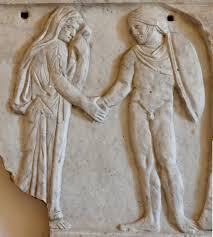
At Jason’s wedding to Medea. Gods
Are vile: the marriage’s allure deceased
As Orpheus’s melody, at odds
With fate, began to fill the nuptial air.
His images stretched out in lyric lines
Across the ceremony, unaware
Of silent doom’s unspeakable designs.
The celebration’s food was laced with death
https://commons.wikimedia.org/wiki/File:Medeia_child_Louvre_K300.jpg
Of murdered children or the poison on
……………
The robe the later bride wore. Poet’s breath,
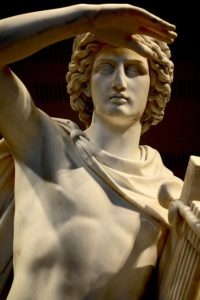 …..Orpheus
…..Orpheus
Words, notes, and lyre were venom in the dawn
Of Jason’s bedding of Medea. She
Felt evil as he thrust in destiny.
Some readers may find this next sonnet offensive. If you might be offended, do not read it.
Divine = Human Equation Human = Divine
Modern poetry modern verse contemporary poetry contemporary verse
“The matchless Ganymede, divinely fair,
Whom Heaven, enamour’d snatch’d to upper air.”
~ Pope’s translation of the Iliad, XX, lines 234-35, or 278-79
Well, first of all he wasn’t matchless. This
Ideal young beauty of a human male
Was matched with Zeus himself. The great god’s hiss
Of lust required the Highest to impale
That perfect Honeypot between his hips.
The reason that the god could not resist
This thunder fuck, this hard apocalypse,
Was not because the king of gods was pissed.
Divinity required this ramming rod
Inside the lad. In other words, the boy,
Divinely fair himself, was truly god
If logic isn’t just a late Greek toy.
..The gods were screwable like Ganymede.
….This wisdom is the gist of their sex creed.
Some readers may find this next sonnet offensive. If you might be offended, do not read it.
Double-edged
Modern poetry modern verse contemporary poetry contemporary verse
He lies beside a man tonight. It means
He looks for love. Another night he lay
Beside a woman. His discarded jeans
And boxers mean one thing. That night, today,
No matter where his sleeping thighs are spread
Their hairiness is marker of a man
And not a boy. There on his slumbering head
Some three-day whiskers stick out through his tan
That makes his beauty sexier outright
As if a sorceress or warlock cast
A spell on him while sleeping so the sight
Of him becomes heroic Jason’s mast
And widespread sails in search of Golden Fleece,
Adventure, slammed excitement, and then peace.
Epicinian: Poetry Is a Victory if We Do Not Bastardize It
“The continuous efforts of English poets in every generation to rediscover a ‘language really used by men’ would have been incomprehensible to a[n ancient] Greek.’” ~ Michael Schmidt, The First Poets, 15, quoting W. H. Auden, The Portable Greek Reader (New York, 1948), 4.
Why bother? Why endeavour to make verse
Sound common like a labourer at tea
Time? Poems like that turn into a curse
Or mumbling, not the soaring apogee
Of language Homer made and Sappho sang.
Why rape the beauty of the poet’s aim
And make it sound like dialectal slang?
Yes, humor might result, but what a shame
To turn the gold of poetry to lead.
The argot of the plumber does not pair
With sonnets. Accents of the potting shed
Will mar the sound of hieratic prayer.
So Wordsworth and drugged Coleridge were wrong.
We do not want the football pitch in song.
Esthetic Wistfulness as Obscenity
“The two greatest poems of western man are still, in many eyes, the two oldest. And the grace and sanity of Greece are not so common in the modern world that we can afford to forget them.” ~ F. L. Lucas in Greek Poetry
Does ancient Greece’s sanity and grace
Include the rape of boys and women by
Great Zeus? Does it include the savage face
That makes the cradled son of Hector cry
By casting him to death from Troy’s wall?
Does taking slaves by scores and hundreds to
Be forced to work in mines, and women crawl
In sex submission to the men who slew
Their husbands, sons, and fathers seem so sane
That we should feel nostalgia for this past?
And what about the prophetess’s pain
When speaking truth makes others feel aghast?
..A father kills his daughter for the pyre.
….Then wife kills him. This ancient Greece was dire.
Etymology of Orpheus
Modern poetry modern verse contemporary poetry contemporary verse
If “of the river bank” is what the name
Of Orpheus might mean,* then that might flow
From jet slick River Hades and the shame
Of failing to recover, to the glow
Of life and sunlight, his lost love. Again
It might refer to two of his five deaths
When by the Helicon he felt the pain
Of females tearing out his final breaths.
That river sank to keep those female hands
From washing off his blood. The Hebrus saw
His head and lyre go floating past its sands
When he was murdered by the jealous claw
Of femininity. Some say the tide
That took him past all shores was suicide.
*Robert Graves
Eurydice behind Orpheus
Do spirits dress in spirit clothes and shoes?
Do spirit sandals make a sound when on
The road in night or are they too diffuse
Of spirit atoms? Spirits walk in dawn
When desperate. Pale clothes do not make sound,
No swishing in the sunrise. Trousers loose
On spirits, I imagine, worn around
Souls’ thighs, around leg hair, do not induce
The slightest whisper. Spirits cannot hear
Such whispering as the rubbing of the cloth
Might make. Mild spirit noises disappear
For us, as quiet as a midnight moth.
..If spirits walk behind us in a cloak

….Of silk, they make more silence than thin smoke.
Ever and Always Death is
Their Final Pathetic Option
“It is therefore necessary to give orders, not only to poets, but also to all artists and craftsmen, that they should portray the image of goodness in their works and avoid everything that is ugly and bad…”. ~ Penelope Murray, Plato on Poetry, 5
“Finally, brethren, whatsoever things are true, whatsoever things are honest, whatsoever things are just, whatsoever
things are pure, whatsoever things are lovely, whatsoever things are of good report; if there be any virtue, and if there be any praise, think on these things.” ~ Philippians 4:8
The poets and the artists, whatever
The genre of their work, should do as they
Are told by better men. Thus forever
Must be the setup. Rulers have their say,
Creative sorts must follow guidelines set
By those who run the nation, and the rest
Is obvious. If guidelines are not met,
Then books are burned. The tyrants do their best
To blinker us, especially the young.
If burning books is not enough, then burn
The music, too. Yank out the artist’s tongue.
They must be careful what our youths can learn.
When Hitler, Stalin, and the Maos are through,
They still can’t stop us being me and you…
Except by killing.
Ever Newly Old
Modern poetry modern verse contemporary poetry contemporary verse modern poem contemporary poem
Each time that Homer spoke his epics, they
Were new. His improvising made the old
A new creation slightly. He could play
With readymade expressions and be bold
Because he knew that this or that king, chief,
Or queen would much prefer one ancient phrase
And not another. Kings might like torn grief,
The roar for dead friend to be sung in ways
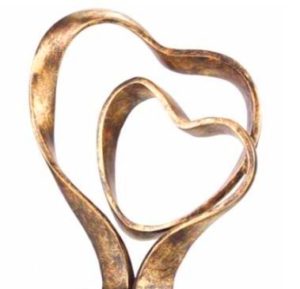
That fitted their bronze thoughts, and shadowed queens
Behind the curtains might desire the lines

About Athena honed in battle scenes
With eyes of gray like lead. The poet’s mines
Of set precisions could be called upon
To make the ancient midnight words a dawn.
Farsighted
“Things that inadvertantly shape us draw upon structures, forms, legends, myths, which have their origin in ancient Mediterranean cultures.” ~ Michael Schmidt, The First Poets
The temples stand still, still and broken. They
Refuse to be forgotten or unseen.
When god-like earthquake comes, they barely sway
Up on their rocky heights. Now they are clean
Of paint across their surfaces, too bright
In Attic sunlight in their ancient ways.
Instead we have grown used to brilliant white
Stone, brilliant as the legends, myths, and blaze
Of lyrics, epics, Sappho, Pindar’s odes
And Homer, brilliant in his blindness, lines
Outliving Chares’ Colossus of Rhodes.
Millennia later we drink their wines
Of architraves and columns and those wide,
Blank statue eyes that, still, act as our guide.
Formal Poetry against Free Verse
Modern poetry modern verse contemporary poetry contemporary verse modern poem contemporary poem
Plato in “inventing some extraordinarily powerful images of his own” came up with “notably the poet as Corybant”. ~ Penelope Murray, Plato on Poetry, 9
If poets are like Corybantes in
Ecstatic dance, then armor is a part
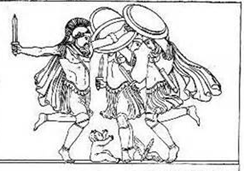
Of their identity. A guarded shin
And thigh and breastplate (that protects the heart)
Are crucial to their rituals. They move
As warrior men and give protection to
The greatest of divinity. They prove
The highest god must be protected. True
To him they dance as if in magic made
Of metal. They protect him in a cave
Where they stamp round the mouth with shield and blade
That clash together as they step in rave
And neatness of their rhythmic patterns. Loose
Bacchantes are not good enough for Zeus.
France, the Ancient Place of Love
“In the mid-fifth century [B.C.], however, a Greek at the Cap d’Antibes inscribed two verses on a black stone shaped like a penis: ‘I am Mister Pleaser, the servant of the holy Goddess Aphrodite.’” ~ Robin Lane Fox, The Classical World: an Epic History from Homer to Hadrian, 36
True love, romance, that highest sort of king
Has quivered in la Côte d’Azur of France
Two thousand years and more. It seeks that thing
Of hardness with its darkest bulge to dance
Inside the holes that otherwise would hurt
With bluest neediness that holes can free.
It’s hard and black in its demands to spurt
Fulfilment, ram with its necessity.
It doesn’t want a perfect sonnet rhyme.
It doesn’t need mere prettiness. It wants
To sing and shout out thrusting, harshest slime.
It wants to fill your body’s darkest haunts.
..It may not be as black as blackest stone,
….But knows full well to make a god-like groan.
Gay Love as Paradox
Love, who is wisdom’s pupil gay ~ Euripides
Euripides goes on to say that love
Leads on to virtue, often. Note that one
Word,: “often,” though, for love is not above
Dementing men with rot-like passion. Stun
Them, that is what love does, like a wasp that
Stings grubs and makes them helpless and then lays
Its eggs inside them; maybe like death’s bat
That sucks men’s jugulars and makes them blaze
Immortally with fever of blood’s heart;
Perhaps like corpses mummified who wait
To be transported past the stars. Love’s dart
Is not a promise of a joyful fate.
The playwright, though, implies quite the reverse—
Unless you think that virtue is a curse.
Gravity: the Greeks and the Old Testament
How terrible and heavy is the past,
How wonderful and marble-like its weight
Upon our brains and guts. The Greeks loom vast;
The Hebrews, too. Their fires in myth frustrate.
We can’t escape to newness. We are crushed
With ancient needs refusing to dispose
Themselves politely. They will not be hushed
Up or be banished. Burdens that they pose
Are worse than rock. Their loads are flesh and bone
And wet voice breath in dithyrambs though we
Can only guess the meaning of the stone
And poetry. Their words and statues free
Old threats inside us. They are uncles. They
Both love and hurt us. They will have their way.
Ha Ha Ha Ha Hacking (Pathetic)
Modern poetry modern verse contemporary poetry contemporary verse modern poem contemporary poem
“A first-century Roman acquired an ancient statue of the comic poet Poseidippus (c. 316-250 BC). He had a local craftsman resculpt it into—or after—his [that Roman’s] face and form.” ~ Michael Schmidt, The First Poets, 40.
An ancient Roman had a portrait made,
A portrait from an ancient poet’s, far,
Far older than the Roman’s time. A blade
Carved marble from the poet’s statue. Star
Poseidippus of Greek comedic fame

Was chiselled at until the sculpture seemed
More like that Latin guy. The Roman’s aim
In such destruction is now lost. What he schemed
Was not erasing of the poet’s face,
But just replacing it with Roman nose
And chin. He didn’t think it a disgrace
To wipe out genius in this Roman pose.
..We do not know how much he paid, its cost.
….Still, brilliance can be hacked at but not lost.
Heroes, Victims, and Poseidon
The metre of ancient Greek poetry succeeds in “achieving a length and complexity
that are unusual in the heroic verse of other literatures.” ~ Michael Grant, The Rise of the Greeks, 325,
as quoted in Michael Schmidt, The First Poets, 16.
The heroes are heroic much because
Of Greek. The feet of ancient Greek stepped strong
In beat. Performance and its poets’ laws
Required short, lonnnng, short, lonnnng, short, lonnnng, short, lonnnng,
Across the stage of theatre and stage
Of voice and singing. Syllables are more
Duration than a stress and so a rage,
A love, great hate, a passion fill the shore
Below the city with a god whose power
Sucks back the waves and sends them crashing in
To mangle beauty, no matter the power
Of innocence’s horses. This is sin
For everyone except the god. The length
Of syllables reveals the harsh god’s strength.
Homeric Similes
“These similes serve to take the reader away from the battlefield for a brief while, into the world of pre-war peace and plenty. Often, they occur at a moment of high action or emotion, especially during a battle. In the words of Peter Jones, Homeric similes ‘are miraculous, redirecting the reader’s attention in the most unexpected ways and suffusing the poem with vividness, pathos and humor’.” ~ https://www.wikiwand.com/en/Homeric_simile
“As when in the sky the stars about the moon’s shining are seen in all their glory, when the air has fallen to stillness, and all the watch places of the hills are clear, and the high shoulders, and the ravines, as endless bright air spills from the heavens, and all the stars are seen, to make glad the heart of a shepherd; such in their numbers blazed the watchfires.” ~ The Iliad, book VIII, lines 555 to 560.
A wilting lily when it comes to gore
And slaughter in the Iliad, I shrink
Inside when shaft of spear goes through the core
Of warrior, or when sword brings out the stink
Of warm intestines. I am not a Greek
With guts of iron inside my soul. I read
The lines and flinch away to more oblique
Hurrahs of words. I have a modern need
For similes made exquisite in turn
Of logic, long in elegance of clause,
Scenes sweet as honey stored in graceful urn,
And cannot gulp from violence’s vase.
I turn away from viciousness, and rush
To beauty,[1] abhorring that sliced throat gush.
[1] “Homeric similes (analogies) have the added effect of:
- a) Injecting lyrical, image-based poetry or abstraction into the concrete action (things don’t just happen; they happen with poetic depth)
- b) Thus elevating the action, the plot from things simply happening (Hector speaking) to things happening beautifully, majestically, with dramatic import and universal significance
- c) Providing symbolic points of reference for the action: comparisons to lions, boars and deer, eagles etc would have had deep, significant and even spiritual resonance for the original Greek audience, who associated each of these animals with specific symbolic qualities (some of which still resonate with us); a lion was always violent, a deer always passive, bird-flight a sign from the gods and certain birds and animals associated with the presence of specific gods (Hector’s words thus beat down on Patroclus as the portent of Patroclus’ impending death)
- d) Suspending time: as we read, our attention shifts from imagining the immediate action – the Greek soldier taking a spear in the gut – to the image offered by the simile, and for a second time seems to This pause, and the attending incursion of the analogous image, slows the action down and: associated with the presence of specific gods (Hector’s words thus beat down on Patroclus as the portent of Patroclus’ impending death).
- e) Ultimately, in conjunction with all the other factors, elevates the action toward a far deeper, possibly spiritual, significance: we are no longer in the realm of action but rather in the realm of meaning” http://www.webpages.uidaho.edu/engl257/Ancient/homeric%20similes.htm